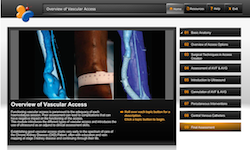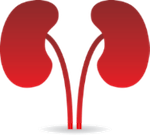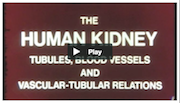![]()
Vivek Jha is Professor of Nephrology, Head of Department of Translational and Regenerative Medicine, Officer-Incharge, Medical Education and Research Cell at the Postgraduate Institute of Medical Education and Research, Chandigarh.
|
ISN Education is pleased to wish you a Happy and Healthy New Year 2016. To celebrate the New Year, ISN Education is pleased to present its top content among its 427 educational items released in 2015. |
||||||||||||||||||||||||||||||||||||||||||||||||||||||||||||||||||||||||||||||||||||||||||||||||||||||||||||||||||||||||||||||||||||||
|
||||||||||||||||||||||||||||||||||||||||||||||||||||||||||||||||||||||||||||||||||||||||||||||||||||||||||||||||||||||||||||||||||||||
This presentation was given by Vivekanand Jha, Executive Director of the George Center for Global Health INDIA and Chair of the ISN Education Committee. It was presented at the 2015 Brunei Nephrology Symposium held from April 4-5 2015.
Wednesday, 28 October 2015 23:33
Epidemiology, disease patterns and the rise of CKD around the world
This presentation was given by Vivekanand Jha, Executive Director of The George Institute for Global Health, India, Professor of Nephrology and John Martin Professorial Fellow at University of Oxford. It was presented at the World Congress of Nephrology 2015 in Cape Town during Session 5: Major environmental threats to health in developing countries: Implications for CKD epidemiology.
This presentation was given by Vivekanand Jha, Executive Director of The George Institute for Global Health, India, Professor of Nephrology and John Martin Professorial Fellow at University of Oxford. It was presented at the World Congress of Nephrology 2015 in Cape Town during Session 9: Managing AKI: Emerging issues.
This presentation was given by Vivekanand Jha, Executive Director of The George Institute for Global Health, India, Professor of Nephrology and John Martin Professorial Fellow at University of Oxford. It was presented at the World Congress of Nephrology 2015 in Cape Town during the Session: Renal transplantation in low income countries.
 A couple of weeks ago, when a mail inviting me to contribute to the ISN blog landed in my inbox, I instinctively hit the delete button. After all, is my life not already too busy? There are grant applications and manuscripts to write and review, PhD theses to pore over, classes to take, presentations and question papers to prepare, patients to see, manage an office, lab meetings to supervise, research consortia to manage, and meetings to go to. And after all, how useful is a blog compared to these very important activities?
A couple of weeks ago, when a mail inviting me to contribute to the ISN blog landed in my inbox, I instinctively hit the delete button. After all, is my life not already too busy? There are grant applications and manuscripts to write and review, PhD theses to pore over, classes to take, presentations and question papers to prepare, patients to see, manage an office, lab meetings to supervise, research consortia to manage, and meetings to go to. And after all, how useful is a blog compared to these very important activities?
Even though the mail was out of my sight but not completely out of my mind. My conscience was jolted further when my son, a master’s student, sent me a link to this story.
The recently concluded World Congress of Nephrology in Cape Town was by all accounts a resounding success. The opening ceremony was fabulous with great interactive entertainment and fantastic inspiring addressees by Archbishop Emeritus Desmond Tutu and Editor of the Lancet Richard Horton.
This presentation was given by Vivekanand Jha, Professor of Nephrology and Head of the Department of Translational and Regenerative Medicine at the Postgraduate Institute of Medical Education and Research (PGI) in Chandigarh, India, and Chair of ISN Education’‘s Editorial Committee. It was presented during the CRRT Conference 2014: Acuty Kidney Injury: Controvesies, Challenges and Solutions, that was held in San Diego from 4 to 7 March 2014.
Hemodialysis is the most popular form of renal replacement therapy the world over. Currently, it is estimated that over 80% of all patients on dialysis are in the developed world, where dialysis is practiced with adherence to quality standards. In the near future the low and middle income countries will see tremendous growth in the number of patients needing renal replacement therapy. This is largely because of changing demographics, increasing life expectancy and economic development. If the population projections hold, and competing causes of death do not interfere, India will have the largest number of dialysis patients in the next 25 years.
Thursday, 09 August 2012 09:21
The global impact of kidney disease: How to approach prevention and treatment in emerging countries
The global impact of kidney disease: How to approach prevention and treatment in emerging countries









